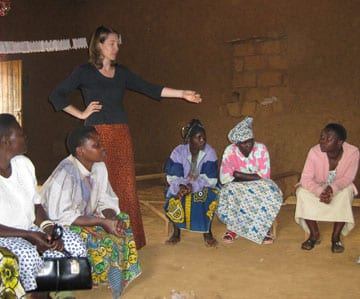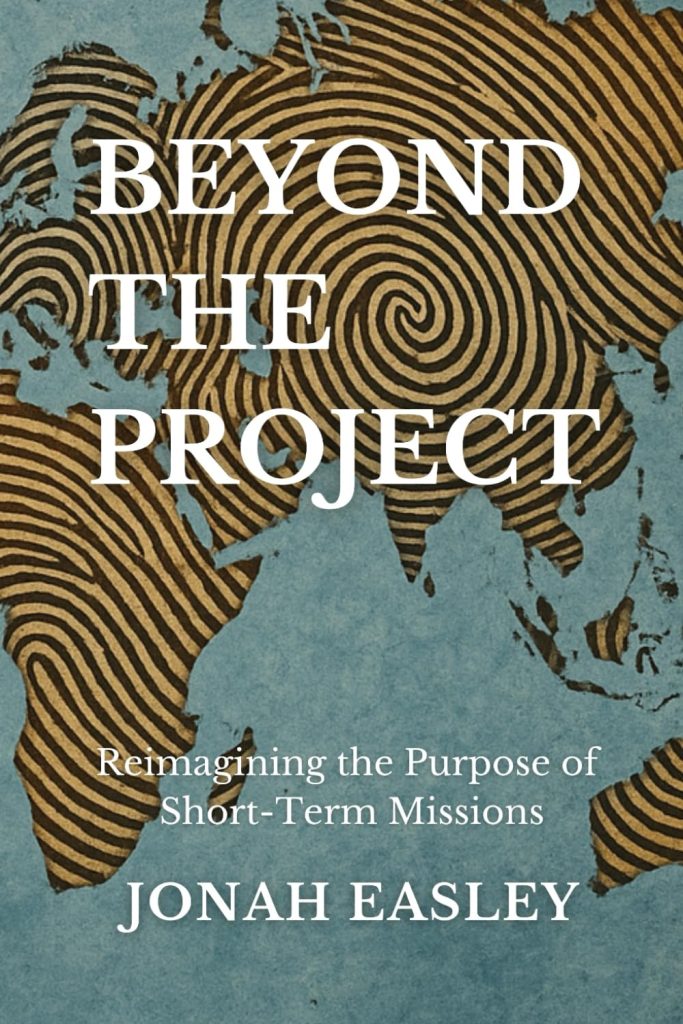Learning Curve in Rwanda: A Long Journey of Transformation

by Debby Thomas
Church was a form of religion, but life transformation wasn’t taking place on a consistent basis. We questioned the purpose of the church, our call, and if church planting and missions was really working.

David arrives in the village after an hour of driving on dusty roads with Dancila, a 64-year-old Rwandan lady who is the national church accountant, and Gaudence, a 52-year-old Rwandan who is the wife of the national church superintendent. Upon arrival, they are greeted with smiles and eager faces, ready to move ahead with the teaching for the day. They move into the mud brick-walled church, sit in a circle on church benches, and pray before beginning.
This community has decided that they need to work on their marriages this month. They realize that poor marriages hold them down in poverty, and they want to learn to improve their marriages as a step to moving out of poverty. Two members present a skit of a couple fighting, in constant disagreement over finances, how to raise the kids, how to spend their time, etc. The group discusses fighting in marriages and agrees that their disagreements are a source of strife in the home.
Then they turn to scripture, studying what God’s word says about marriage. Not all of the members are literate, but scripture is read aloud numerous times as different people ask questions and share insights into the scripture. They wrap up their time together with each person sharing what he or she will put into practice this week from the scripture in order to improve his or her marriage.
After a month of interactive teaching and learning on marriage, David, Dancila, and Gaudence visit families in their homes to see and hear about the life transformation that is occurring. Sometimes they even talk to the kids or the neighbors to see the impact the discipleship is having on their lives. Home visits are exciting! We see lives that are being transformed at every level and having an impact on the whole community.
David comes home excited by Dancila and Gaudance’s growth as excellent facilitators and leaders in this process. He also loves the community discussions and often gains new insights into the scriptures and into Rwandan culture. He is highly motivated by helping people move out of a poor, fatalistic, dependent mindset to a place of hope for the future, deepening faith in God, and the experience and knowledge that they can expand the Kingdom of God and move out of poverty.
This brief glimpse into one community visit offers a taste of what holistic community development through discipleship looks like. This community has studied issues of farming, salvation by grace, animal husbandry, financial management, discerning God’s will, health and cleanliness, and other topics over the last five years. They are learning how to identify the barriers that trap them in poverty, and they are learning to overcome these problems through a holistic discipleship process that teaches them to become problem solvers, to study God’s word, and to use the resources they have to address the problems their community faces.
Called to Rwanda?
David and I (Debby) were called to missions and specifically to Rwanda about nineteen years ago. David grew up in Bolivia, and as a young child felt the call to missions through his parents’ work in Bolivia. I received a specific call to missions when I was 16 while listening to missionaries who were back from the field sharing their story in my home church.
After graduating from college and getting married, David and I pursued opportunities to go to India. However, the mission agency with which we desired to serve, Evangelical Friend Mission (EFM), asked us to go to Rwanda. We had been married for only six months, were expecting our first child, and Rwanda had just experienced a devastating genocide. We weren’t thrilled about going. But through prayer and sharing and praying with good Christian friends and mentors, we discerned that God was indeed calling us to Rwanda.
A Rocky Adjustment
The first term in Rwanda of four and a half years was brutal. Language learning and cultural adjustments in the midst of a war-torn country threatened to devour us. Life was physically, emotionally, and spiritually challenging in every way. During that first term, one impression stuck with us and haunted us: people came to church to sing, dance, pray, and listen to sermons, but often it didn’t affect their daily lives. Church was a form of religion, but life transformation wasn’t taking place on a consistent basis. We questioned the purpose of the church, our call, and if church planting and missions was really working.
This struggle stayed with us for many years. For three years in a row my number one ministry goal for the year was to discover how to live out a holistic gospel, and how to take others along with me on that journey. David and I committed an hour a day to asking the Lord to show us how to integrate spirituality with physical reality.
Answers came slowly. First it was fuel-efficient cooking. I learned what I could, taught it to others, and kept praying. Crop failure often keeps Rwandans in poverty and 90% of Rwandans are involved in agriculture. So I began to research and apply farming methods that would help Rwandans with their crops, as well as ways to integrate scripture with teaching in farming.
These early efforts brought successes and failures. But all the while we kept praying and applying everything we could. I took my masters degree online through Fuller Theological Seminary and was able to take some courses on holistic development that opened my eyes to other Christians who were already practicing much of what I was discovering. Among these was a group doing Discipling for Development (D for D), now a ministry of the Navigators. They were experts at doing what I had been trying to figure out for years.
Finding Our Place
I approached the D for D leaders and asked for training and ongoing mentoring. I was trained in D for D along with three Rwandan pastors and we began the process of mentoring leaders who would partner with us to reach out to whole Rwanda communities in an effort to teach them how to face poverty, apply God’s word to every aspect of their lives, and help others experience God’s transforming power in their lives.
It has been a long, strenuous, and rewarding process. We have committed five years to the first three communities that are now showing amazing signs of transformation in many areas of life. These three communities are nearly ready to reach out to surrounding communities to help them experience God’s transformation in every area of life. As a team (three missionary units) and our Rwandan colleagues, we are planning to expand into other parts of the country to train more Rwandan leaders in D for D now that we understand and are fluent in the process.
This has been a rewarding and challenging journey. We have wrestled with issues of poverty, spent countless hours in communities, shed tears, and experienced many disappointments and hurts as well as many rewarding times and triumphs. Through this, I have learned that ministry is relational. There are no quick fixes. For someone to truly change—to experience true transformation—God must be present and working, and it will involve a long, hard, relational, rewarding, transformational process for everyone involved.
I am called from deep within to live out and to embrace a gospel that touches all of life. I’m called to be the Church together with my Rwandan brothers and sisters. God calls me into a constant process of transformation in every area of my life as I in turn give others the opportunity to take a journey of transformation in every area of life. Knowing Jesus changes every aspect of my life. Jesus wants to shine through every part of my physical, emotional, relational, and spiritual life. Sharing Jesus with others is a process of facilitating Jesus’ transforming power to become a part of every aspect of life, changing people, families, communities, and nations.
….
Debby Thomas lives and works in Rwanda with her husband, David, and their four children. David and Debby serve the Friends Church of Rwanda through the Dicipling for Development ministry and have been working in Rwanda since 1997. Debby is currently a PhD candidate at Regent University studying organizational leadership.
EMQ, Vol. 50, No. 2, pp. 222-225. Copyright © 2014 Billy Graham Center. All rights reserved. Not to be reproduced or copied in any form without written permission from EMQ editors.


